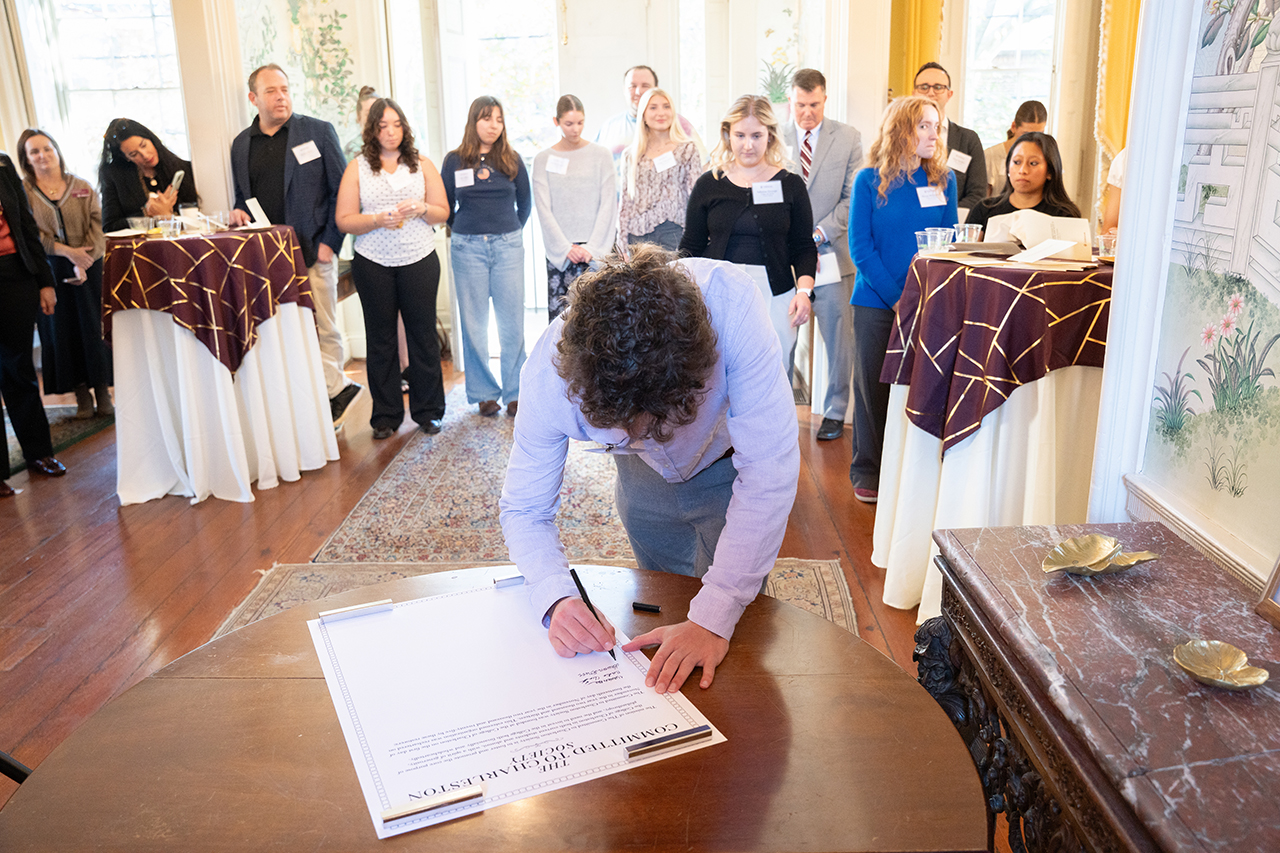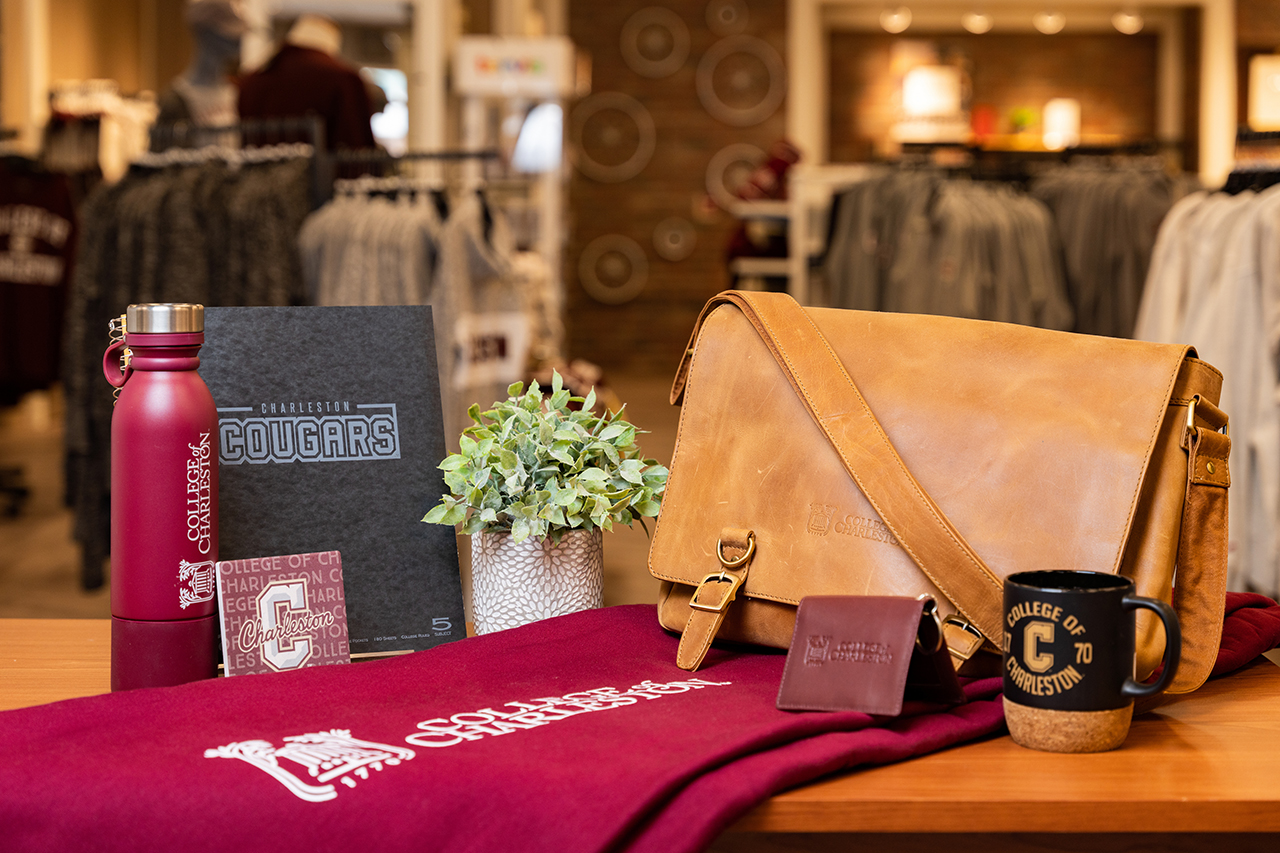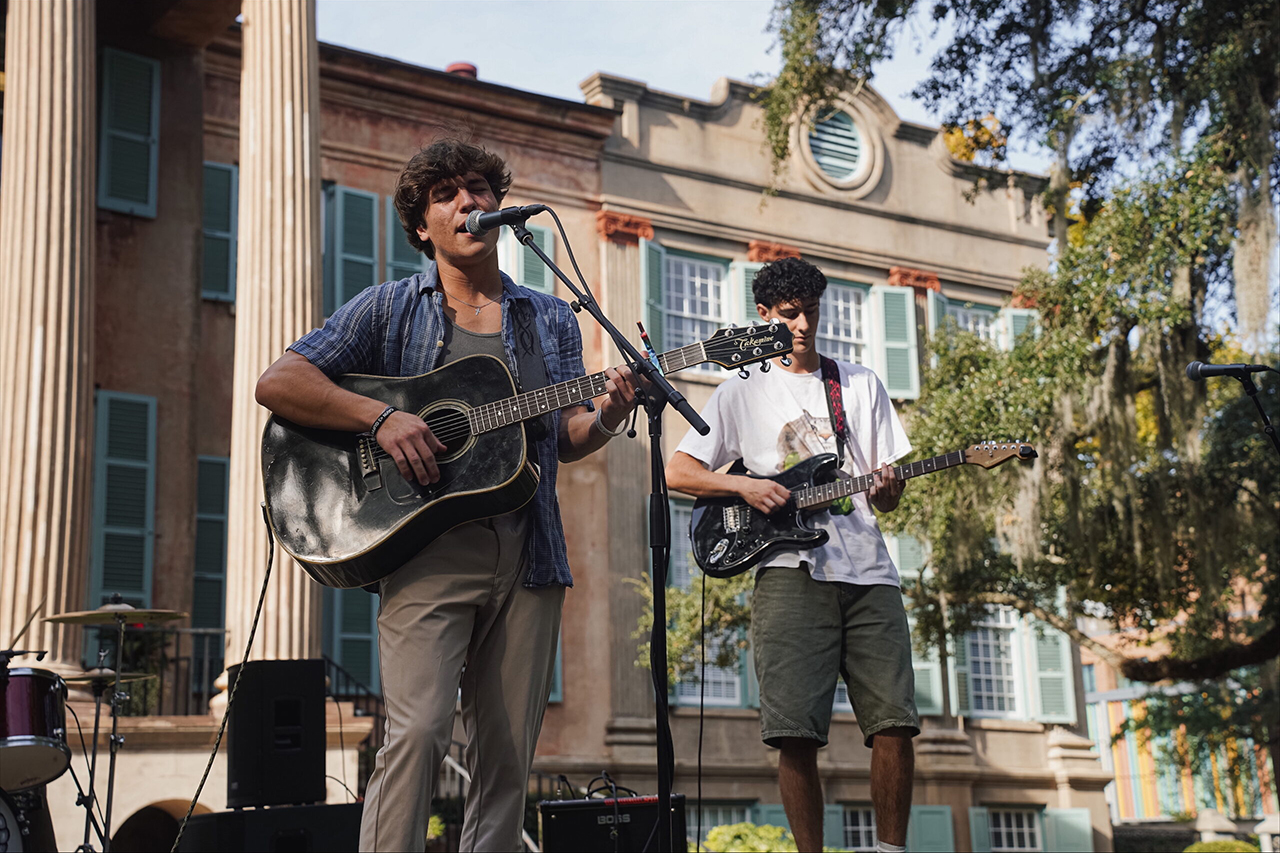National Geographic Internship Maps Out Future for CofC Student
Rising senior Sophia Mucci is honing her GIS skills and Python coding abilities while working on the geography and mapping team with the National Geographic Society.
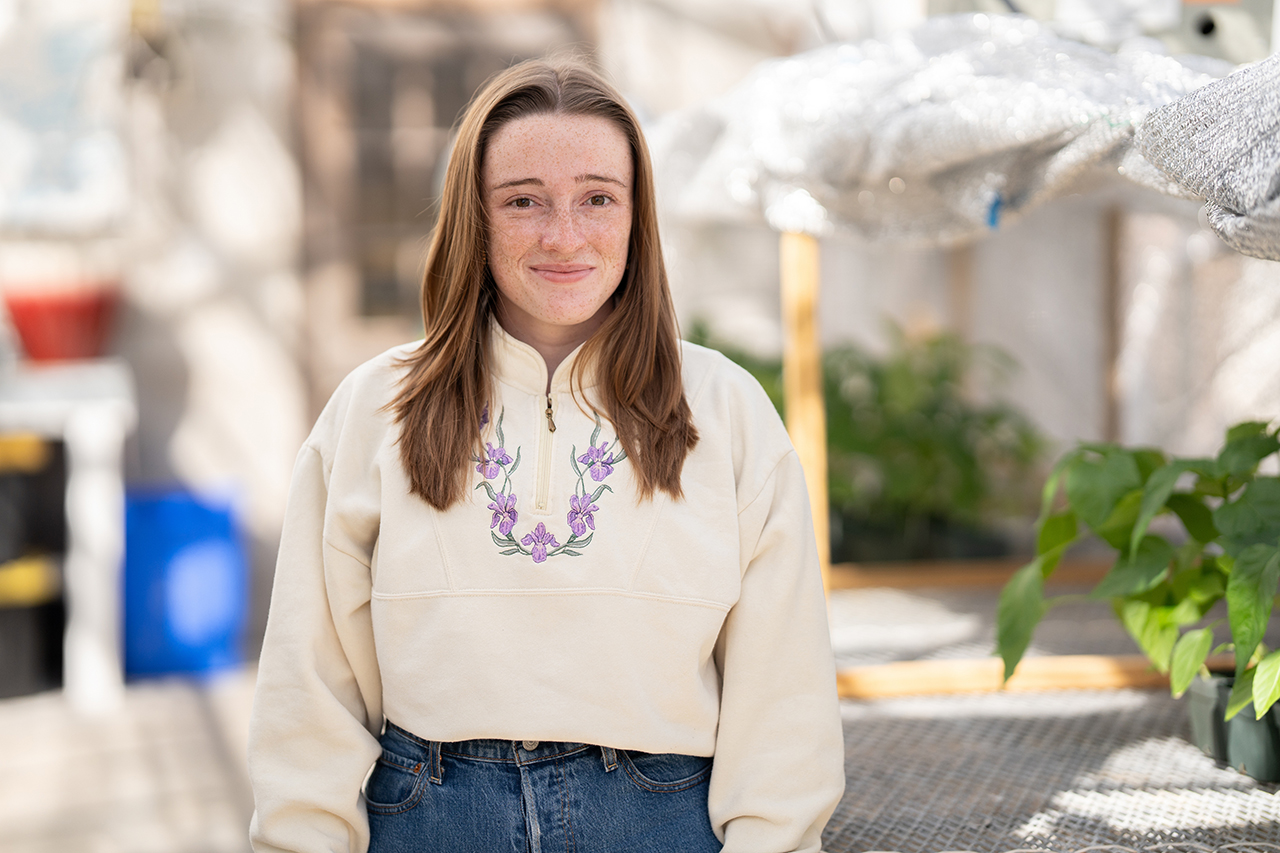
When College of Charleston Honors College student Sophia Mucci applied for a competitive summer internship with the National Geographic Society, she said it was a “dream job” opportunity.
Out of hundreds of applicants, this rising senior stood out.
“Some stars must have aligned there,” says Mucci, who is spending her summer interning with the nonprofit side of National Geographic on the geography and mapping team, honing her geographic information systems (GIS) skills and Python coding abilities. “It worked out for the best, and it’s been awesome so far.”
As an environmental geosciences and French and Francophone studies double major with a minor in geoinformatics, Mucci is thrilled about her role on the team, which supports the nonprofit’s Explorers Program.
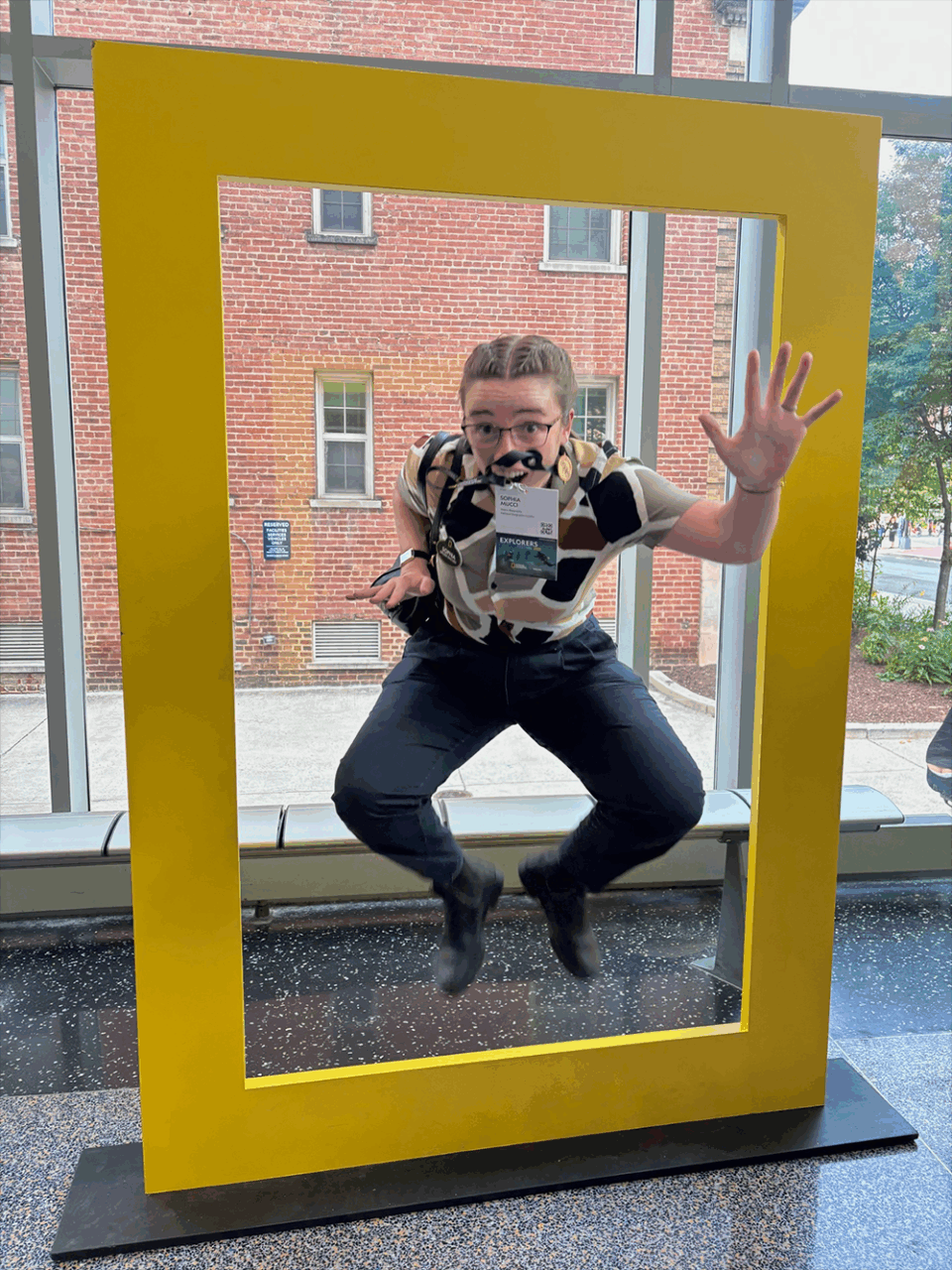
Explorers receive grants from the National Geographic Society to pursue conservation efforts, scientific research, wildlife photography and other innovative initiatives to protect, understand and educate people about the natural world.
“We work with Explorers on different maps that they need,” Mucci says. “For me specifically, I work a lot with data processing and the back end of things, not necessarily making the pretty maps but doing all the data crunching needed to make that happen.”
Data are the tools with which Mucci helps illustrate the Explorers’ efforts.
“I’ve been really excited to work on projects that expand my Python and coding skill set,” she says. “I’ve been able to work on a lot of projects that have pushed me in new and unique ways in terms of what I can automate using coding and how I can then take the data that I’ve produced and really tell stories with different web applications.”
Exploring New Frontiers
Though her internship is remote, Mucci traveled to Washington, D.C., in June to attend the weeklong National Geographic Society Explorers Festival, where she met various Explorers and other National Geographic teams.
During the festival, staff and Explorers from across the globe share research, stories and resources.
“The mapping team had a seminar on how to work with satellite imagery, or what’s new in the age of AI, using AI for mapping,” Mucci says.
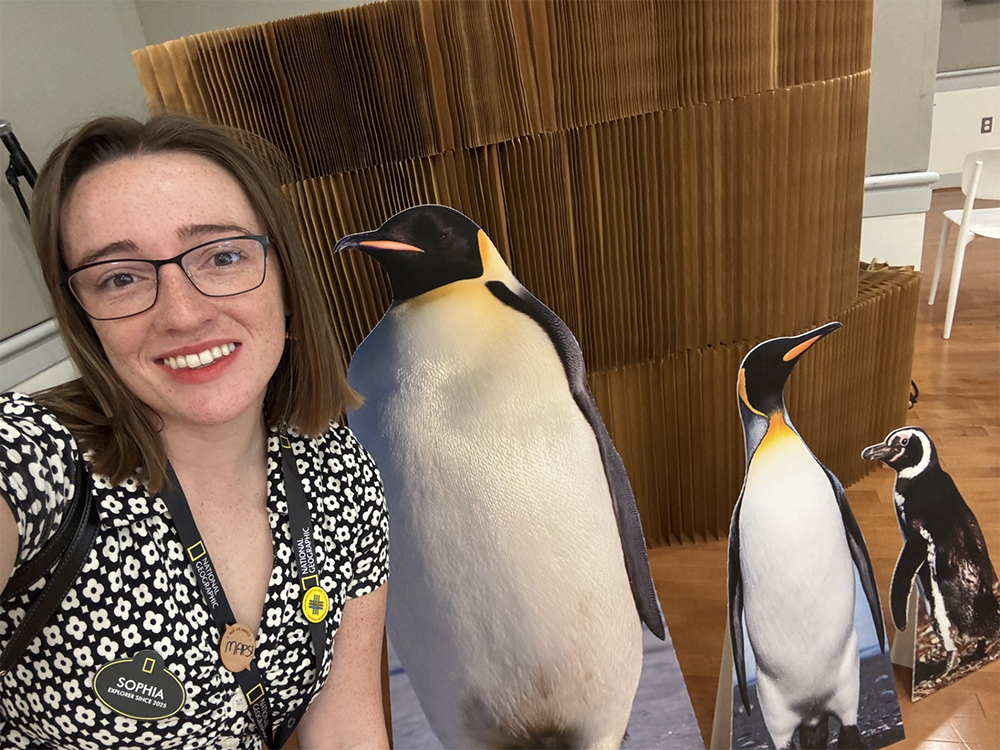
She met people working on vastly different projects, from a researcher using terrestrial LIDAR to map rainforests to an Explorer working to protect Argentinian penguins.
“Unless you get out there and talk to people, you really don’t know that these kinds of opportunities exist,” she says, adding that she found connections between many of the Explorers’ work and research she’s encountered or participated in at the College. “I thought, Wow, that’s very close to what I’m doing with this professor. Or, That’s really close to what this professor is doing, and it made me excited all over again to be in this space where everyone’s doing all these cool things.”
Being in an exciting space like National Geographic is exactly what makes internships so valuable.
“Success requires good skills and good networking,” says Bryan Ganaway, associate dean of the Honors College and Mucci’s advisor. “An internship is one of the best ways to practice your analytical methods and practical skills while creating a network of colleagues who can help you transition from college to the workforce.”
And this isn’t the only opportunity to network that Mucci has lined up for the summer.
In July, she’ll visit San Diego for the ESRI User Conference, where she’ll present research regarding electric vehicle drivers and hurricane evacuation routes in South Carolina. She began working on this research her freshman year with Norm Levine, professor of geology and environmental geosciences and director of the Santee Cooper GIS Laboratory and Lowcountry Hazards Center. They’ve collaborated with the South Carolina Emergency Management Division on the project.
RELATED: Read about Sophia Mucci’s previous research with Norm Levine.
“Sophia knew from the moment she arrived on campus that she wanted to utilize empirical methods to inform policy choices relating to environmental sustainability,” Ganaway says. “She was also committed to studying abroad and listening to other people’s perspectives. It is unusual for an undergraduate to have strong facilities in both quantitative and qualitative methodologies, but Sophia is one of those individuals.”
With many opportunities to fine-tune and apply her skills in new, creative ways, Mucci feels inspired.
“I love having multiple projects at the same time, and I love talking to people,” she says. “I want to continue that in terms of solving problems on the global scale and talking with people, whether that be consulting, government, nonprofit. Wherever I can make change, I think is where I want to go.”

